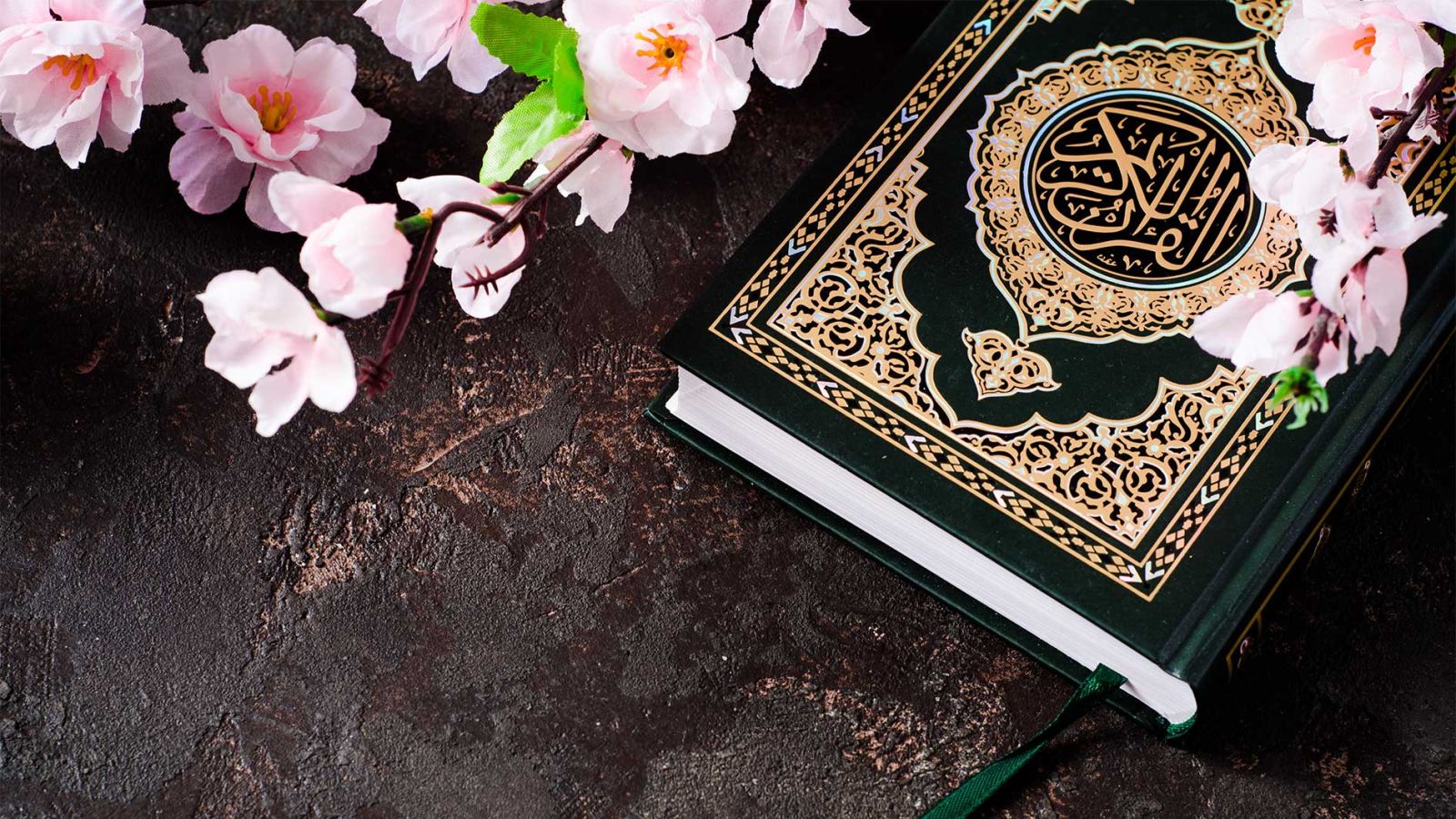The Shaykh started off by informing us that the Prophet (ṣallallāhu ʿalayhi wa-sallam) was sent with the Dīn of Truth that would be victorious over all religions, even if the kāfirs hate it.
It is He Who has sent His Messenger (Muḥammad (ṣallallāhu ʿalayhi wa-sallam)) with guidance and the religion of truth (Islām), to make it superior over all religions even though the Mushrikun hate (it).
[Sūrah al-Tawbah(9):33]
Verily, We have sent you (O Muḥammad (ṣallallāhu ʿalayhi wa-sallam)) as a witness, as a bearer of glad tidings, and as a warner.
[Sūrah Al-Fatʹh (48):8]
The Shaykh informed us that there is no oppression in this Dīn, in fact it is a mercy for all of the world.
And We have sent you (O Muḥammad (ṣallallāhu ʿalayhi wa-sallam)) not but as a mercy for the Alamin.
[Sūrah al-Anbīyyāh(21):107]
The Shaykh informed us that the foundation of the Prophet’s (ṣallallāhu ʿalayhi wa-sallam) daʿwah was the CALL TO THE TAWḤĪD OF ALLĀH taʿālā, TO THE WORSHIP OF ALLĀH ALONE.
And I (Allāh) created not the jinn and mankind except that they should worship Me (Alone).
[Sūrah al-Dhārīyāt(51):56]
The Shaykh explained how the Prophet (ṣallallāhu ʿalayhi wa-sallam) spent the period in Mecca. It was spent in the establishment of the call to Tawḥīd – to the worship of Allāh taʿālā alone; and to leave off everything that was connected to the worship of idols and false deities, which would not bring them any harm or benefit.
The Shaykh pointed out the reason for the spread of al-Islām in such a short period of time. It was due to what the Prophet (ṣallallāhu ʿalayhi wa-sallam) and his Companions were upon. The Companions took this dīn and called to the hikmah.
Invite (mankind, O Muḥammad (ṣallallāhu ʿalayhi wa-sallam)) to the way of your Lord (i.e. Islām) with wisdom and fair preaching…
[Sūrah al-Naml(16):125]
The Shaykh went on to advise us that those of us who take this Dīn and call to the correct teaching, should call with that which is in it, while:
- having mercy
- having kindness
- giving good direction to the people
- being an example for them
- calling them with speech and action
- having good conduct
- directing the people with goodness
- being patience
- calling the people to that which will correct them
- not being harsh, especially to the ignorant as it can turn them away from al-Islām
The Shaykh mentioned an example that shows the benefits of not being harsh in daʿwah, especially to the ignorant. It is the ḥadīth of the bedouin who urinated in the mosque of the Prophet (ṣallallāhu ʿalayhi wa-sallam). This as we know is a munkar – an evil thing as it brings najāsah – dirt, in the house of Allāh taʿālā. The Companions realised this and wanted to treat him with hardness. They were stopped by the Prophet (ṣallallāhu ʿalayhi wa-sallam). Then he (ṣallallāhu ʿalayhi wa-sallam) advised the bedouin that this is not the madhab of the masjid, but rather this is something that should be done outside. The Prophet (ṣallallāhu ʿalayhi wa-sallam) was aware that the bedouin was ignorant of the affairs of the masjid. After the bedouin realised that the Companions wanted to treat him harshly, he replied, “May Allāh have mercy on me and on you (the Messenger (ṣallallāhu ʿalayhi wa-sallam)) and no one else.” This was due to the Prophet (ṣallallāhu ʿalayhi wa-sallam) dealing with him with mercy.
Narrated Abū Hurayrah:
A bedouin urinated in the mosque, and the people rushed to beat him. Allāh’s Apostle ordered them to leave him and pour a bucket or a tumbler (full) of water over the place where he has passed urine. The Prophet then said, “You have been sent to make things easy (for the people) and you have not been sent to make things difficult for them.”
[Taken from sahihalbukhari.com (The Book of Good Manners – #5733)]
The Shaykh went on to advise that the religion is sincere advice. Sincere advice to Allāh, His Messenger, to the Book, to the leader of the Muslims and to the common folk.
From Tamīm al-Dārī (raḍī Allāhu ʿʿʿanhu) who said that Allāh’s Messenger (ṣallallāhu ʿalayhi wa-sallam) said:
“The Dīn is sincerity. The Dīn is sincerity. The Dīn is sincerity.” We asked, “To whom O Messenger of Allāh?” He replied, “To Allāh, to His Book, to His Messenger, to the leaders of the Muslims and their common folk.”
[Taken from ‘Forty Ḥadīth on The Call to Islām and the Caller’ page 34. Reported by Muslim (# 55)(eng. trans. vol. 1, #98)]
Common folk are not from the people of knowledge; so, we have to call them with kindness and mercy.
Āʿishah, the wife of Allāh’s Prophet (ṣallallāhu ʿalayhi wa-sallam), reported Allāh’s Prophet (ṣallallāhu ʿalayhi wa-sallam) as saying:
Kindness is not to be found in anything but that it adds to its beauty and it is not withdrawn from anything but it makes it defective.
[Taken from sahihmuslim.com (#6274)]
The Shaykh told us that the one who calls to the daʿwah must have good manners, good conduct and speech when calling the people. What is desired from the believer is that he wants for his brother what he wants for himself.
Narrated Anas (raḍī Allāhu ʿanhu):
The Prophet (ṣallallāhu ʿalayhi wa-sallam) said, “None of you will have faith till he likes for his (Muslim) brother what he likes for himself.”
[Taken from ‘The Translation of the Meanings of Summarised Ṣaḥiḥ Al-Bukhārī’ translated by Dr. Muḥammad Muhsin Khan, (ḥadīth #13 – The Book of Belief)]
The Shaykh advises to be patient and to like for one’s brother what he likes for himself. So Allāh taʿālā will aid him. The Shaykh then mentions the methodology in giving daʿwah:
- Firstly, we start with the Shāhādah, meaning Tawḥīd – there is no one worthy of worship except Allāh taʿālā alone.
- Next, the teachings of ʿĪbādah. That they are only for Allāh taʿālā, from the affairs of ṣalāh, sawm, Zakāh, Ḥajj, duʿāʾ, kawf, ri’jaa. The affairs of calling, fearing, having hope are only for Allāh taʿālā.
- We abstain from everything that He has forbidden. Innovation should be rejected.
Narrated Āʿishah:
Allāh’s Apostle said, “If somebody innovates something which is not in harmony with the principles of our religion, that thing is rejected.”
[Taken from sahihbukhari.com – The Book of Peacemaking (ḥadīth #2523)]
- We have to understand the Kitāb and the Sunnah upon the understanding of the Salaf. One should not try to understand these affairs from oneself. Rather, he should refer back to those who were present, who took the Qurʾān and Sunnah from the Prophet (ṣallallāhu ʿalayhi wa-sallam) directly as it was revealed to him. We must follow the Companions in the daʿwah – the calling to Allāh, in one’s character, in the affairs of advice and the likes.
And whoever contraḍīcts and opposes the Messenger (Muḥammad (ṣallallāhu ʿalayhi wa-sallam)) after the right path has been shown clearly to him, and follows other than the believers’ way, We shall keep him in the path he has chosen, and burn him in Hell – what an evil destination!
[Sūrah al-Nisāʾ(4):115]
The Shaykh went on to say that we must be patient and call to the good with good exhortation. If you were to come to them with harshness, then the people would not accept it from you and they would leave you. The Shaykh mentioned an example of the methodology of the Prophet (ṣallallāhu ʿalayhi wa-sallam):
Narrated Āʿishah (radhiyAllāhu ‘anha):
Once the Jews came to the Prophet (ṣallallāhu ʿalayhi wa-sallam) and said, “Death be upon you.” So I cursed them. The Prophet (ṣallallāhu ʿalayhi wa-sallam) said, “What is the matter?” I said, “Have you not heard what they said?” The Prophet (ṣallallāhu ʿalayhi wa-sallam) said, “Have you not heard what I replied (to them)? (I said) The same to you.”
[Taken from ‘The Translation of the Meanings of Summarised Ṣaḥiḥ Al-Bukhārī’ translated by Dr. Muḥammad Muhsin Khan, (ḥadīth #1264 – The Book of Jihād)]
The Shaykh elaborated on the fact that Muḥammad (ṣallallāhu ʿalayhi wa-sallam) gave back what was like it, without increasing upon that. He gave back that which was given. This is how the Prophet (ṣallallāhu ʿalayhi wa-sallam) was in directing and teaching the people. The deen is Naṣīḥah, calling to the affairs of ʿĪbādah – the correct worship of Allāh, and calling to that which is better.
Then the Shaykh advises us before closing that the Salafīs must be upon patience. They must have patience and good exhortation in their daʿwah. Maybe the people will not follow you directly or accept it from you. Nūḥ (ʿalayhi wa-sallam) remained calling his people for a period of 950 years. He made great efforts in calling them day and night, in open and in private. This only increased them in turning away with haughtiness.
The Shaykh concludes by counseling us to remember that numbers is not what is to be considered, but rather what is to be considered is the manhaj of the Ḥaqq – the Truth.













